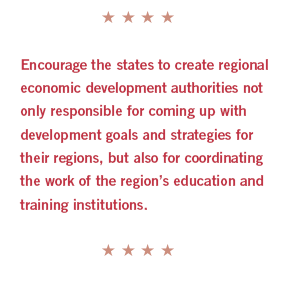|
In 2004 Catherine Austin Fitts
was interviewed on the Jim Puplava radio program to talk
about U.S. government finances and mismanagement. Fitts is
Founder and President of Solari, Inc. And organization
designed help promote 'healthy local living economies'.
Former background: Managing
Director and member of the Board of Directors of the Wall
Street investment bank, Dillon and Reed. She was also
Assistant Secretary of HUD under the first Bush
Administration.
Audio Clip of Fitts
Text from the transcript on Rense
In the mid-90's Jim,
we knew that a huge amount of jobs and income-generating
activities in America were going to get outsourced to Asia.
I mean, those decisions were made in the early 90's, and we
knew that was going to happen.
Rio Declaration on Environment and Development - 1992
[They included people and jobs as tradable commodities under
the WTO-GATS agreement. In effect, the Clinton
Administration SOLD OUT the American people by making it
possible to trade away our livelihoods - our jobs. By
putting our high technology jobs on the global market,
Clinton stuck a knife in the heart of America's economy]
And I was
a leader in Washington promoting a model whereby Americans
paid down their debt, refinanced their communities and
themselves on an equity basis, and redeveloped their skills.
I mean, we knew the
workforce was going to have to reengineer itself, and our
pension funds and retirement arrangements were not going to
be financially credible unless the workforce reinvented
itself, and paid down its debt, you know, then.
[Retrain for
what? With no manufacturing and no knowledge jobs, there is
nothing to retrain for - except how to be a Walmart Greeter
and a McD's Burger flipper.]
So we knew
then we had a problem. And what happened is was my team was
kicked out of Washington, and a decision was made instead of
reengineering folks, skills, or migrating them to equity and
starting new businesses, a decision was made to float the
economy of the biggest wave of debt that I can imagine. And
what we've done is we've seen consumer debt skyrocket.
Now, when you move
all your income abroad, and you leave your growing debt at
home, it doesn't take long to understand what's going to
happen to a Fannie Mae or Freddie Mac or a Ginnie Mae.
At some point the growing debt has got to get serviced, and
the question is how?
You can flood the country with immigrants who can buy up
real estate that you finance at the bottom, but at some
point something's got to give in the middle. I mean, if you
shrink and collapse the middle class, they're going to
default on their mortgages.
Entire Fitts Interview
|
|
Knowledge Trade Initiative
The
U.S.-India Business Council and the Federation of Indian
Chamber of Commerce and Industry (FICCI) are pleased to
announce the Knowledge Trade Forum, the culminating event of
the Knowledge Trade Initiative (KTI), to be held in
Bangalore, India, November 29-30, 2001.
The KTI was launched during
President Clinton’s trip to India in March 2000,
and was subsequently organized under the auspices of the
USIBC and FICCI. The KTI is a
bilateral forum between India and the U.S. to discuss key
issues affecting the trade of knowledge-based products and
services between the two countries. The KTI aims to solidify
Indo-US leadership in the knowledge economy by harmonizing
bilateral positions on key issues affecting knowledge trade.
The Forum
will also provide the backdrop for the presentation of the
final report of the KTI. The KTI has formed a series of
working groups to consider key policy areas that affect the
trade in knowledge-based products and services. Over 150
international experts in each of their fields have met
regularly over the past months coming up with policy
recommendations for India and
the U.S. to secure their positions as leaders of the new
economy.
(Actually -
India is the leader of the new economy because this trade
initiative is draining our country of knowledge jobs and
corporations and shareholders and getting obscenely wealthy
on the deal.)
Joint Statement Between U.S. and India November 9,
2001
Joint Statement Between the United States of America and the
Republic of India
A trade agreement with India having to do with knowledge
jobs and Information Technology using 'terrorism' as the
reason is a Great Non Sequitur.
NASSCOM - February 2001
'More US firms depend on Indian
IT cos than ever before'
"More than 250 Fortune 1000
US companies now depend on Indian IT companies for their
mission critical work,"
said Richard F Celeste, US Ambassador to India.
"The partnership between
India and the US has strengthened into a 'relationship'
today because we share common values and devotion to
democracy. This relationship is enabled by the revolution in
technology and Internet," he said.
"This is a kind of DNA
infusion from Indian subcontinent to the United States. The
percentage of Indian graudates coming to the US is
increasing every year and more number of these students are
coming back to India to work," said Celeste. He was speaking
at the Nasscom 2001 international IT conference in Bombay
recently."
|
|


 Economy
Economy